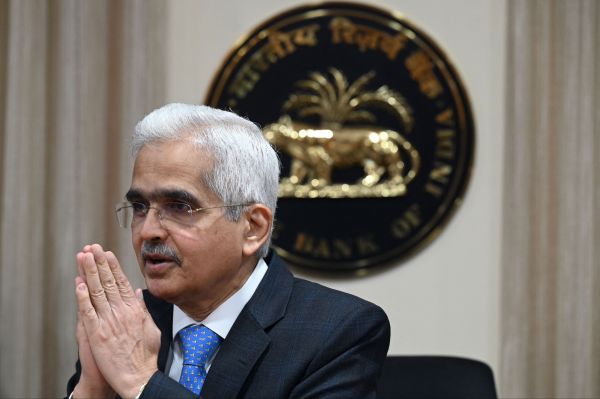Good morning.
Looks like this won’t be the year of big Wall Street bonuses.
An industry analysis released on Tuesday by Johnson Associates, Inc., a New York-based compensation consulting firm, finds bankers’ bonuses will decline or be mostly flat. But there are some exceptions, like high-performing wealth management professionals, who are in high demand.
A lag in M&A and rising interest rates means investment banking advisory professionals can expect to see their year-end incentives (cash bonuses and equity awards) decline 15%-25% this year, compared to 2022. Meanwhile, awards to regional commercial and retail bankers are projected to decline 10%-20%, according to the analysis.
“Most Wall Street professionals will have to wait another year for a rebound in year-end bonuses,” Alan Johnson, managing director of the firm, said in a statement. With the macroenvironment, “most business segments remain under pressure to keep compensation costs down,” Johnson said.
However, Johnson also points to some bonus bright spots. Global retail and commercial bankers are projected to receive awards as much as 10% larger compared to 2022. Investment banking equity underwriters are projected to receive a 5%-15% increase. And wealth management pros are expected to receive up to 5%.
Is high inflation driving the wealth management bonus bump? “It’s not directly tied, but it may be a contributing factor,” Chris Connors, principal at Johnson Associates, tells me. “The key drivers are client demand and the competitive landscape for talented wealth management professionals,” Connors says. “We describe this as a booming space and a growth area for banks and traditional asset management firms.”
According to recent McKinsey research, “a decade of favorable macroeconomic conditions and relatively easy growth has ended, signaling a new urgency for US wealth managers to rethink operating models and reenergize growth.”
Johnson Associates’ analysis also projects that those at hedge funds, private equity, asset managers and in sales and staff positions can expect modestly smaller to flat year-end payments. The analysis is based on the firm’s monitoring of the financial services industry, numerous proprietary data points, and public data from six of the nation’s largest investment and commercial banks, and 10 of the largest asset management firms.
And 2024 is “unfortunately expected to be another challenging year,” according to Johnson Associates. Many sectors will launch from a lower starting point next year, “leading to compensation challenges that require attention and creativity,” the firm predicts.
Sheryl Estrada
[email protected]
Leaderboard
Jeff Shepherd was named CFO at Subway, a multinational fast food restaurant franchise. Shepherd succeeds Ben Wells who will retire at the end of the year after a 46-year career. Most recently, Shepherd served as EVP and CFO of Advance Auto Parts. Before Advance, he served as controller for General Motors Europe and held several senior roles within the organization.
Daryl Stemm was named CFO at SmartRent, Inc. (NYSE: SMRT), a provider of smart home and property operations solutions. Stemm, who has served as the company’s SVP of finance since 2021, brings four decades of experience to the role. Before joining SmartRent, he held senior finance positions with Best Western Hotels and Invitation Homes, and served as CFO at Home Director, Inc., and Catalyst Semiconductor, Inc.
Big deal
Morgan Stanley Wealth Management’s recent Q4 Investor Pulse Survey highlights how investors are holding financial benefits in higher regard than lifestyle perks.
A key finding is what respondents indicate as “success” in their careers, according to data provided to CFO Daily. The majority ranked having a large balance in your 401k (92%) as more important than a larger office (8%), for example. Access to an estate planner (80%), earning company stock as a bonus (78%), and using a deferred compensation plan (62%) were also the top choices.
The findings are based on an online survey of 908 self-directed investors, investors who fully delegate investment account management to financial professionals, and investors who utilize both.
Going deeper
Workplace flexibility is improving health outcomes for some employees. A new study led by Harvard T.H. Chan School of Public Health and Penn State University found increasing workplace flexibility may lower certain employees’ risk of cardiovascular disease. At an IT company and a long-term care facility, researchers designed a workplace intervention meant to increase work-life balance. Researchers observed that employees at higher baseline cardiometabolic risk, especially older employees, experienced a reduction in their risk for cardiovascular disease equivalent to between five and 10 years of age-related cardiometabolic changes.
Overheard
“I think that Airbnb has turned the corner. The Holy Grail is becoming more like an AI travel agent that’s the ultimate agent that can learn about you, and understand you. It doesn’t just ask you, ‘where are you going’ or ‘when are you going’ but [understands] who you are and then can match you to anything you want, especially with your travel needs.”
—Airbnb CEO Brian Chesky discussed his big hopes for AI in an interview with Fortune.
This is the web version of CFO Daily, a newsletter on the trends and individuals shaping corporate finance. Sign up for free.




